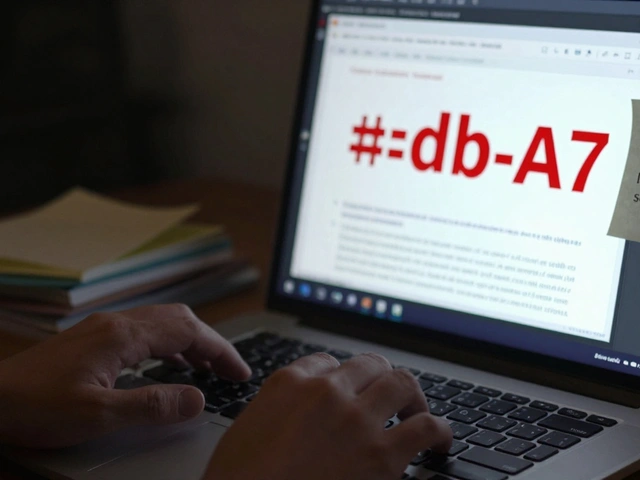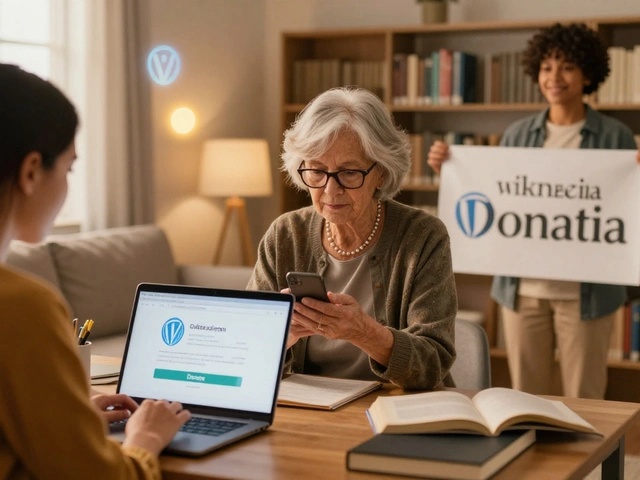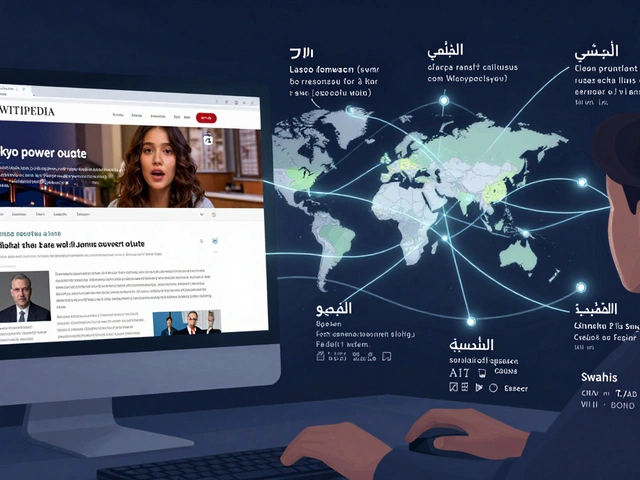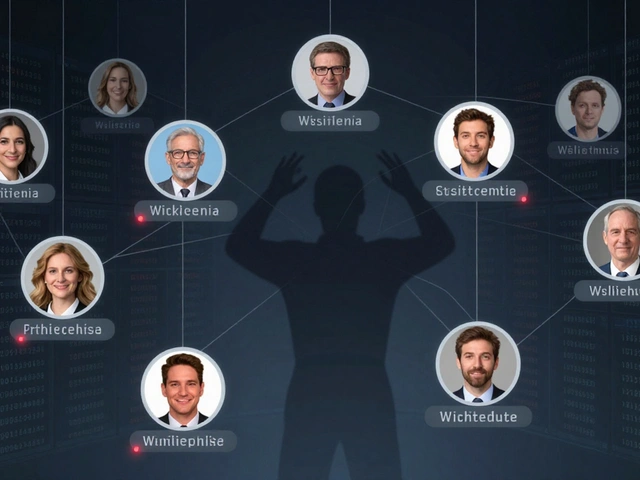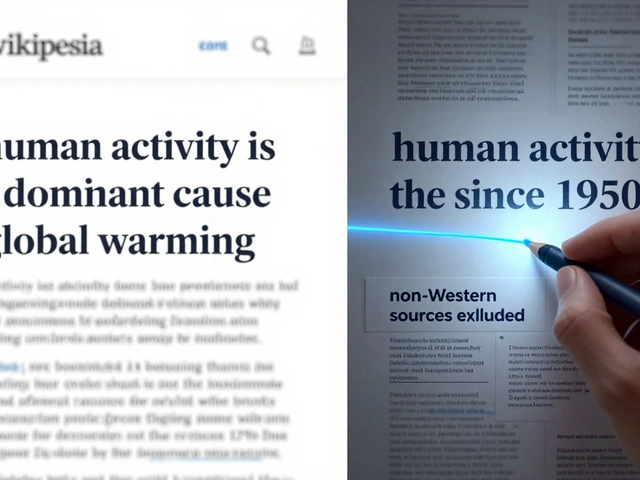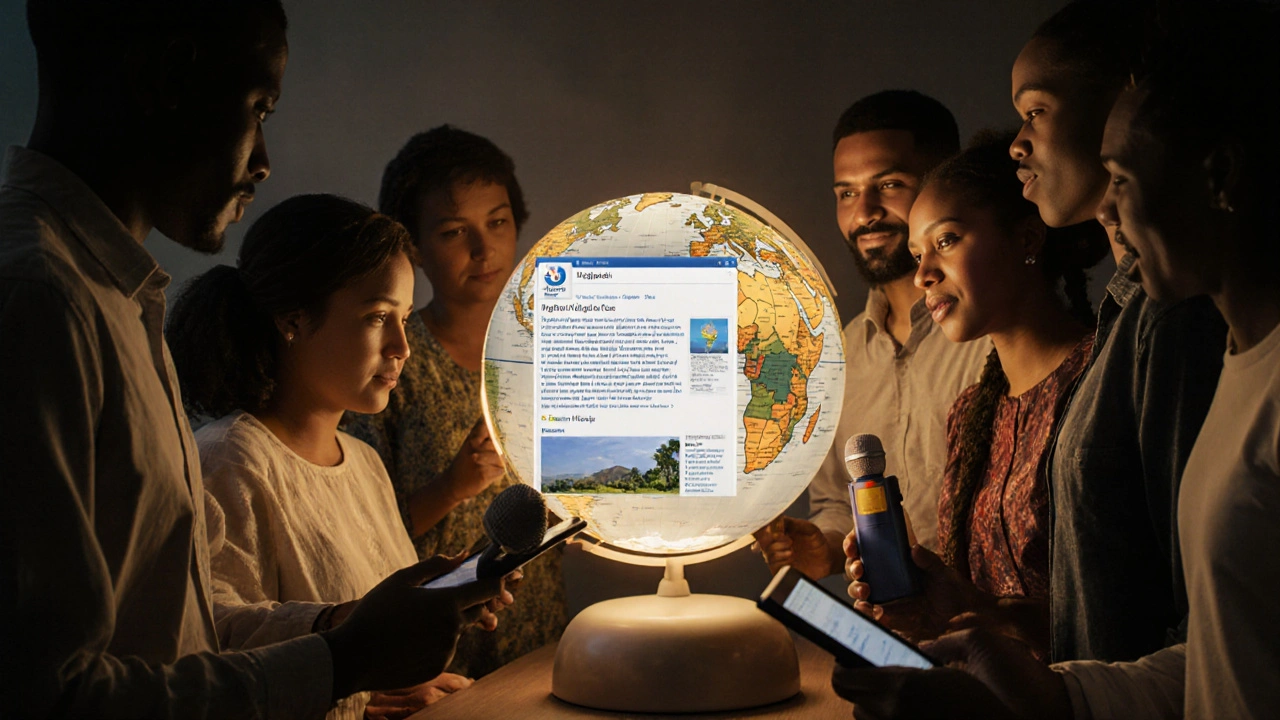
Wikipedia isn’t just a website anymore. It’s a living system that shapes how millions learn, fact-check, and understand the world. But behind the scenes, researchers are asking bigger questions: How does knowledge really get made here? What’s broken? And where should we go next?
Who Writes What, and Why Does It Matter?
Over 1.5 billion people visit Wikipedia every month. But fewer than 100,000 active editors contribute to it. That’s not a bug-it’s a feature. The system works because a small group of dedicated people do most of the heavy lifting. But that also means the knowledge isn’t evenly distributed.
Studies show that articles on U.S. history or pop culture get far more attention than topics from Africa, Indigenous communities, or the Global South. A 2023 analysis of 500,000 articles found that only 12% of biographies about women were rated as "high quality," compared to 28% for men. Why? Because the people writing them are mostly from North America and Europe, and they write what they know.
This isn’t about bias in intent-it’s about bias in access. If you don’t have internet, time, or cultural confidence to edit, your knowledge doesn’t show up. The real challenge isn’t fixing grammar. It’s fixing participation.
The Algorithmic Blind Spot
Wikipedia doesn’t run on algorithms the way social media does. No likes. No shares. No trending lists. But it does rely on bots, templates, and automated checks to keep things running. These tools flag vandalism, enforce citation rules, and even suggest edits.
Here’s the problem: those same tools often reject valid contributions from non-native English speakers or people using non-standard formats. A researcher in Manila might add a well-sourced fact about local agriculture, but the bot flags it because the citation uses a different date format. The edit gets reverted. No human reviews it. The knowledge disappears.
Recent work from the University of Toronto showed that edits from low-income countries are 37% more likely to be automatically rejected than those from the U.S. or Germany-even when the content is accurate. That’s not neutrality. That’s systemic exclusion disguised as efficiency.
What Happens When Wikipedia Goes Offline?
Most people think of Wikipedia as always-on. But in places without reliable internet, it’s downloaded and used offline. The Kiwix project, which lets people access Wikipedia on USB drives or local servers, is used in refugee camps, rural schools, and disaster zones.
But here’s the catch: the offline versions are snapshots. They don’t update. If a student in Malawi downloads Wikipedia in 2022, they’re still reading outdated info about the country’s prime minister or health policies. There’s no easy way to sync updates without internet.
Researchers are now testing "lightweight sync" systems that let users on low-bandwidth networks push small updates back to a central server. Early trials in Bangladesh showed that users were willing to contribute if the process took less than 30 seconds and didn’t require typing long citations. The real opportunity? Turning offline users into active contributors-not just passive readers.
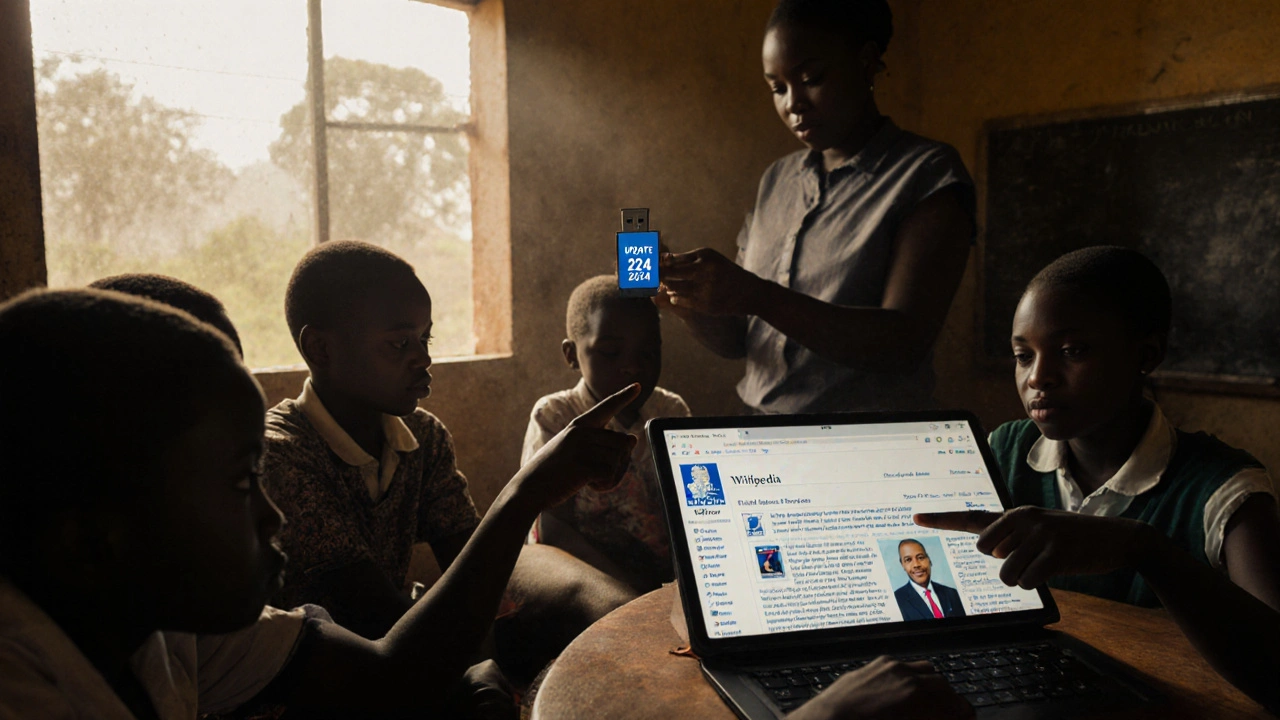
Can AI Help or Hurt?
AI tools are being used to write Wikipedia articles. Some are written entirely by LLMs. Others are edited by humans using AI suggestions. The Wikimedia Foundation has even tested AI-generated summaries for long articles.
But here’s what no one talks about: AI doesn’t cite sources the way humans do. It paraphrases. It invents plausible-sounding references. A 2024 study found that 23% of AI-generated Wikipedia content contained citations to non-existent papers or misattributed quotes.
That’s dangerous. People trust Wikipedia. If AI starts slipping fake sources into articles, it erodes that trust. But banning AI isn’t the answer. The real question is: how do we build guardrails?
Some researchers are testing "citation provenance" tools that track whether a source was manually verified, AI-generated, or copied from another article. Others are building AI models trained only on Wikipedia’s editorial history-so they learn how humans actually write, not just how language works.
The Missing Metrics
Wikipedia measures success by page views, edit counts, and article quality ratings. But those numbers don’t tell the whole story.
What if an article gets 10,000 views but no one edits it? Is it perfect-or forgotten? What if a community in Peru adds 50 new facts about local plants, but no one from the global community notices? Is that contribution invisible?
Researchers are now building new metrics: "knowledge equity index," "edit diversity score," "cultural reach." These try to measure not just quantity, but who’s included and who’s left out.
One team at MIT created a tool that maps how often articles from different regions link to each other. They found that African history articles rarely link to Latin American ones-even when the topics are closely related. That’s not just a technical gap. It’s a cultural one.
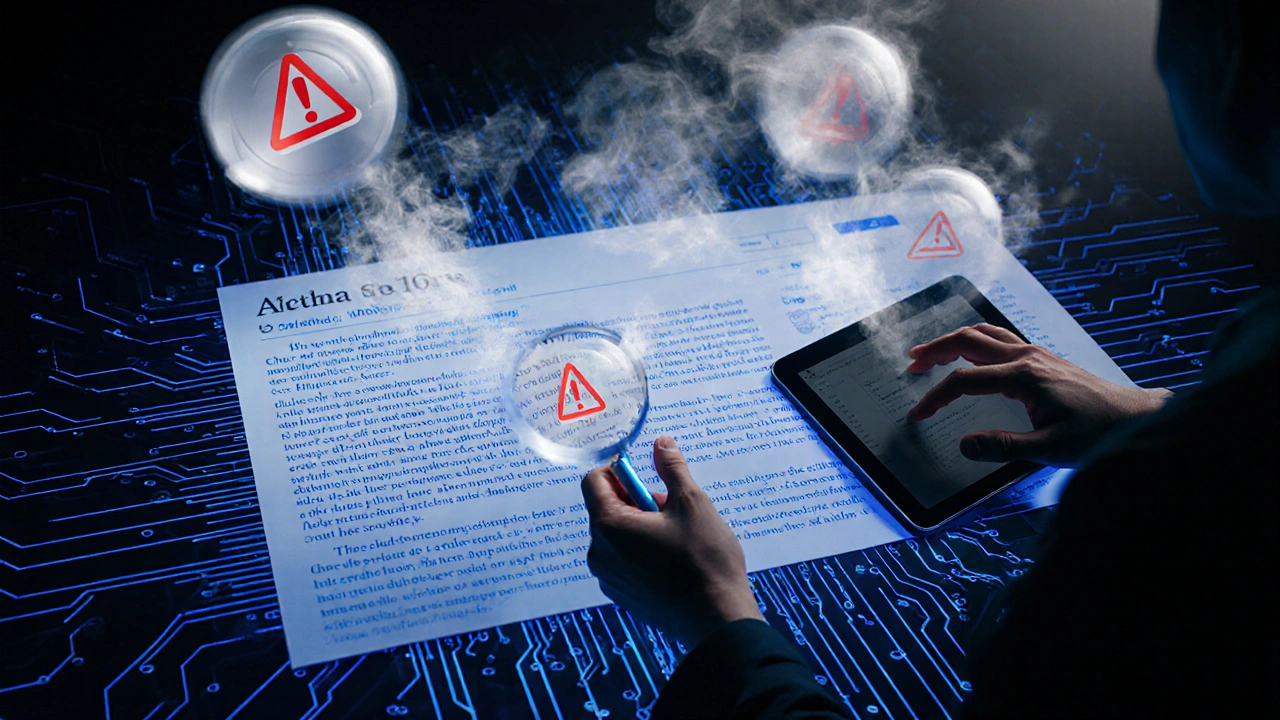
Opportunities That Don’t Get Enough Attention
There are quiet breakthroughs happening that don’t make headlines.
- Wikipedia is being used in classrooms in rural India to teach critical thinking. Students don’t just read articles-they compare them to local oral histories.
- In Nigeria, university students are training elders to record interviews about traditional medicine, then turning them into Wikipedia entries with verified sources.
- A group in Brazil built a voice-based editor for people who can’t type. You speak your edit. The system transcribes, formats, and submits it.
These aren’t fringe experiments. They’re blueprints for a more inclusive future. The real opportunity isn’t making Wikipedia bigger. It’s making it more human.
What Needs to Change
Here’s what needs to happen next:
- Wikipedia needs to stop treating edits from non-English speakers as "errors" and start treating them as signals.
- Automated tools must be audited for cultural bias-not just technical accuracy.
- Offline access needs real-time sync options, not just static snapshots.
- AI contributions must be labeled, tracked, and verified by humans.
- Researchers need funding to study knowledge gaps, not just traffic patterns.
The goal isn’t perfection. It’s fairness. Wikipedia has the chance to become the first global knowledge system that reflects the whole world-not just the loudest voices.
Frequently Asked Questions
Why doesn’t Wikipedia fix its bias problems?
Wikipedia doesn’t have a central team that decides what gets added or removed. It’s run by volunteers and automated tools. Fixing bias means changing how thousands of volunteers interact with the system-and how the bots are programmed. That’s not a quick fix. It requires long-term research, new tools, and cultural awareness that most tech companies don’t prioritize.
Can AI ever write a good Wikipedia article?
AI can draft content quickly, but it can’t judge reliability the way a human editor can. A good Wikipedia article isn’t just accurate-it’s written in a neutral tone, properly cited, and reviewed by others. AI doesn’t understand context, cultural nuance, or why a source matters. Right now, AI works best as a helper, not a writer.
How can someone outside the U.S. or Europe contribute meaningfully?
Start small. Add one fact with a reliable source. Join a WikiProject focused on your region. Many communities have local editors who help newcomers. You don’t need to write a full article. Even correcting a date or adding a citation helps. The system works better when more voices are part of it.
Is Wikipedia still the most trusted source online?
Yes, but only if people understand how it works. Surveys show that 80% of users trust Wikipedia for general facts-but only 20% know that anyone can edit it. Trust comes from consistency, not authority. The more transparent the process, the more trust it earns. That’s why documenting how edits are made is just as important as making them.
What’s the biggest threat to Wikipedia’s future?
The biggest threat isn’t misinformation. It’s disengagement. If fewer people from diverse backgrounds feel welcome to edit, Wikipedia will keep reflecting only a narrow slice of humanity. Without active, global participation, it becomes a digital museum of the past-not a living record of the present.
